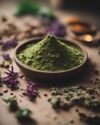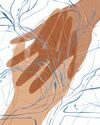
After we start a heart-based meditation practice, we soon begin to appreciate the benefits we experience from daily practice. We also start enjoying the condition of stillness and composure we experience after each meditation in the morning.
Progressively, this condition starts to extend throughout the day. We remember the inner state more frequently, and with this undercurrent of stillness we are able to fulfil our world responsibilities effectively, with minimum emotional disturbance. In other words, we start becoming meditatively active – with an inner meditative state, we are outwardly active. This is an important transition, because active meditation leads us to be meditatively active.
It is often short-lived, though, as it is difficult to retain a meditative state in the midst of day-to-day activities. It recedes as the day goes on, we end up losing the state of remembrance, and we find it difficult to retrieve. What if we could extend this meditative state throughout the day?
To reach the stage where it becomes permanent we need a method, and it is explained through the acronym AEIOU. It is a way of deeply absorbing the meditative state within us. This method is practiced after meditation for a few minutes. It can also be done at other times during the day for a few minutes, like switching between activities, so as to retrieve the meditative condition into our consciousness.
How to practice AEIOU?
“A” is Acquiring the condition. To do this, we study our condition closely right after meditation. For example, we may observe our breathing pattern, the quality and intensity of our thoughts and feelings, any activity or movement we experienced in the chakras during meditation, and any inspirations. We can contrast this with what we observed before meditation. Then we can appreciate what we have acquired.
This story is from the {{IssueName}} edition of {{MagazineName}}.
Start your 7-day Magzter GOLD free trial to access thousands of curated premium stories, and 9,000+ magazines and newspapers.
Already a subscriber ? Sign In
This story is from the {{IssueName}} edition of {{MagazineName}}.
Start your 7-day Magzter GOLD free trial to access thousands of curated premium stories, and 9,000+ magazines and newspapers.
Already a subscriber? Sign In

A Flower from THE HEAVENS
November 14 is Children's Day. This year, SARA BUBBER brings to you a world of forests, magical flowers, festivals, and some animals you may have never seen.

Meeting Phenomenal Women
The author, CHITRA BANERJEE DIVAKARUNI, is interviewed here by TARA KHANDELWAL and MICHELLE D'COSTA about her books on mythology, like The Palace of Illusions, which is a retelling of the Mahabharata from Draupadi's point of view, and The Forest of Enchantments, which is a retelling of the Ramayana, from the eyes of Sita. And there's The Last Queen, which is about Rani Jindan's life.

HERBAL TOOTH POWDERS: Rediscovering Ayurveda's Natural Secrets
SRAVAN BANDA presents a natural herbal tooth powder, offering a holistic approach to oral hygiene, harnessing the power of medicinal herbs.

The Dance of Light and Shadow Lessons from the Dolomites
ALAIN DESVIGNE explores the Dolomites, listed as a UNESCO World Heritage Site in 2009.

FINDING OUR WAY
A Polynesian Explorer's Journey of Discovery

The First Imprint: Understanding PTSD
CHRISTIANNA DEICHMANN is the Director of Education at the Association for Pre and Perinatal Psychology and Health (APPPAH), where she educates both professionals and parents on fostering the most nurturing environments for welcoming new life into the world.

The Tipping Point
In this final conversation of the series, J. FREDERICK ARMENT continues to talk with CHRISTINE JONES about promoting peace in the world.

UNLOCK YOUR POTENTIAL
Take The Brighter Minds Path To Cognitive Development

The Intrinsic Goodness of the Heart
DAAJI shares some thoughts on heartfelt acceptance and all it has to offer. He says, \"It is the heart's intrinsic goodness that allows us to accept everything as part of us.

How Does Fear Affect Our Roles as Mothers? - Neelam Shivhare explores some of the great ancient texts of India on motherhood, compares the behavior of Kaikayi and Yashoda
Neelam Shivhare explores some of the great ancient texts of India on motherhood, compares the behavior of Kaikayi and Yashoda, and realizes the importance of removing fear from our hearts in order to nurture our children.For young women like myself, who are future mothers, I trust we are on the path of becoming selfaware and brutally honest with ourselves. We are creative beings, never forgetting the gifts with which we have been bestowed— the love and tenderness, natural instincts, and intuition to feel the right path. It all lies in the mysterious meanderings of the heart. Are we really listening to our hearts, or confusing the bombarding information on social media with reality?